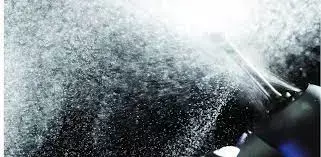- Home
- Medical news & Guidelines
- Anesthesiology
- Cardiology and CTVS
- Critical Care
- Dentistry
- Dermatology
- Diabetes and Endocrinology
- ENT
- Gastroenterology
- Medicine
- Nephrology
- Neurology
- Obstretics-Gynaecology
- Oncology
- Ophthalmology
- Orthopaedics
- Pediatrics-Neonatology
- Psychiatry
- Pulmonology
- Radiology
- Surgery
- Urology
- Laboratory Medicine
- Diet
- Nursing
- Paramedical
- Physiotherapy
- Health news
- Fact Check
- Bone Health Fact Check
- Brain Health Fact Check
- Cancer Related Fact Check
- Child Care Fact Check
- Dental and oral health fact check
- Diabetes and metabolic health fact check
- Diet and Nutrition Fact Check
- Eye and ENT Care Fact Check
- Fitness fact check
- Gut health fact check
- Heart health fact check
- Kidney health fact check
- Medical education fact check
- Men's health fact check
- Respiratory fact check
- Skin and hair care fact check
- Vaccine and Immunization fact check
- Women's health fact check
- AYUSH
- State News
- Andaman and Nicobar Islands
- Andhra Pradesh
- Arunachal Pradesh
- Assam
- Bihar
- Chandigarh
- Chattisgarh
- Dadra and Nagar Haveli
- Daman and Diu
- Delhi
- Goa
- Gujarat
- Haryana
- Himachal Pradesh
- Jammu & Kashmir
- Jharkhand
- Karnataka
- Kerala
- Ladakh
- Lakshadweep
- Madhya Pradesh
- Maharashtra
- Manipur
- Meghalaya
- Mizoram
- Nagaland
- Odisha
- Puducherry
- Punjab
- Rajasthan
- Sikkim
- Tamil Nadu
- Telangana
- Tripura
- Uttar Pradesh
- Uttrakhand
- West Bengal
- Medical Education
- Industry
Dentists and dental assistants at higher risk of exposure to tuberculosis: Study

Dentists and their assistants are at a greater risk of exposure to Mycobacterium Tuberculosis than the general public, according to a recent study published in the British Dental Journal.
The risk of aerosol transmission of pathogenic agents during dental treatment is unknown. Dentists use high-energy equipment, such as drills and scalers, in the presence of bodily fluids such as blood and saliva, and dental plaque. This combination has been shown to generate aerosols of oral micro-organisms and blood.
A group of researchers conducted a study to measure the concentration of microbial aerosols in general dental practices and to use this information to carry out quantitative microbiological risk assessments.
Microbial air sampling was carried out continuously during 12 treatment sessions in 6 general dental practices in the South West of England.
The Results of the study are as follows:
- The microbial aerosol concentration in treatment rooms was generally less than 103 colony forming units per cubic metre of air (cfu.m-3).
- However, in 6 out of the 12 visits, at least one peak concentration with much higher numbers of bacteria was detected.
- The peak concentrations were associated with increased recoveries of presumptive oral streptococci suggesting these aerosols originated from the mouths of patients.
- These aerosol peaks dissipated within 30 minutes and no dissemination into waiting areas was detected.
- The peak concentrations were associated with mechanical scaling procedures (47% of procedures giving rise to a peak) and to a lesser extent by cavity preparation (11%). No aerosolised blood was detected.
Thus, the researchers concluded that the data have been used to generate a framework for quantifying risk of exposure of staff to aerosolised microbial pathogens in general dental practice. For example, dentists and their assistants may have a slightly higher risk of exposure to Mycobacterium tuberculosis than the general public. The use of face seal masks that have been shown to protect against aerosolised micro-organisms may reduce this exposure.
Reference:
Microbial aerosols in general dental practice by A M Bennett et. al published in the British Dental Journal.
https://doi.org/10.1038/sj.bdj.4800859
Dr. Shravani Dali has completed her BDS from Pravara institute of medical sciences, loni. Following which she extensively worked in the healthcare sector for 2+ years. She has been actively involved in writing blogs in field of health and wellness. Currently she is pursuing her Masters of public health-health administration from Tata institute of social sciences. She can be contacted at editorial@medicaldialogues.in.
Dr Kamal Kant Kohli-MBBS, DTCD- a chest specialist with more than 30 years of practice and a flair for writing clinical articles, Dr Kamal Kant Kohli joined Medical Dialogues as a Chief Editor of Medical News. Besides writing articles, as an editor, he proofreads and verifies all the medical content published on Medical Dialogues including those coming from journals, studies,medical conferences,guidelines etc. Email: drkohli@medicaldialogues.in. Contact no. 011-43720751


